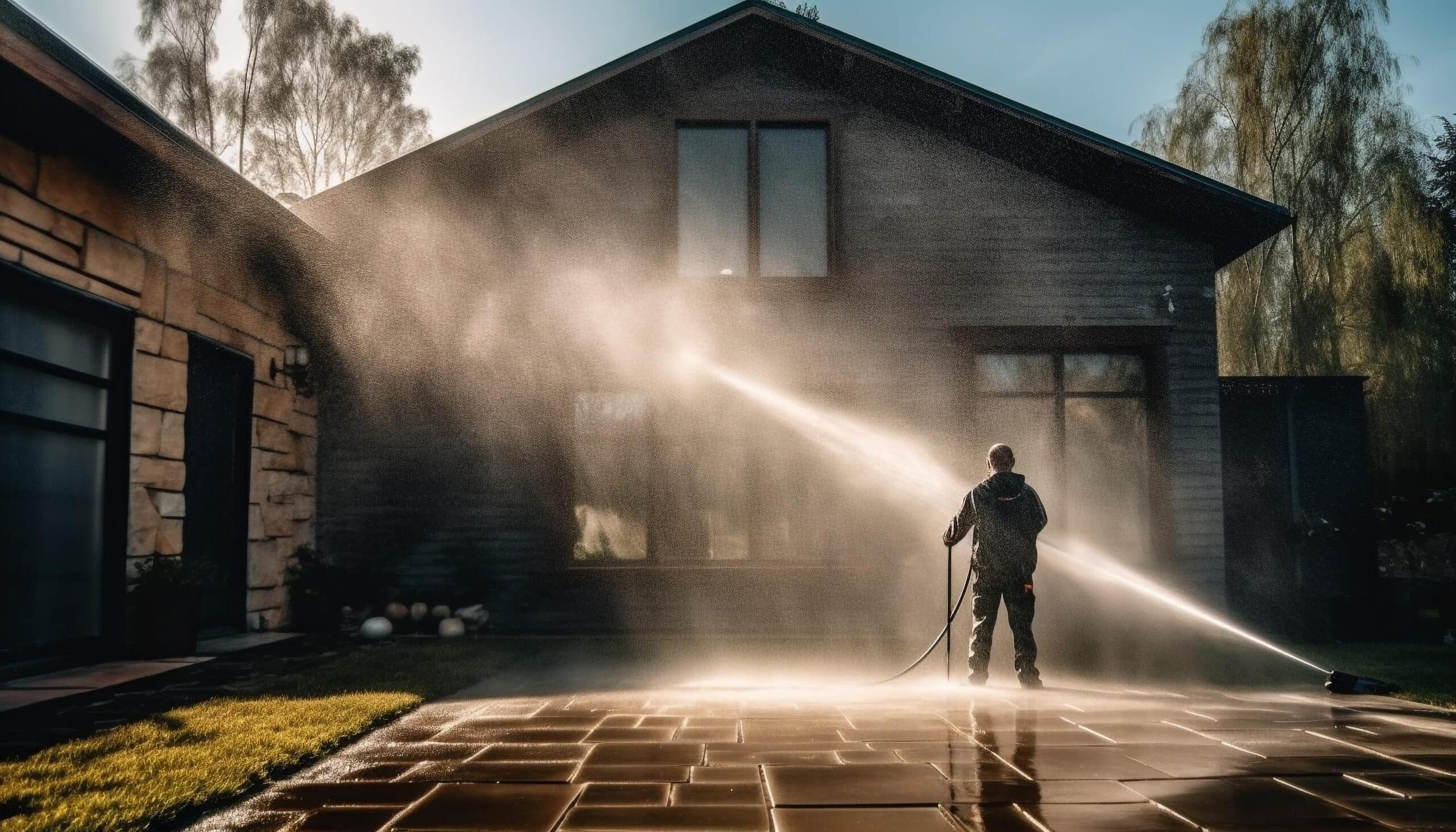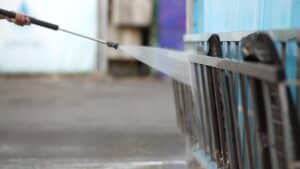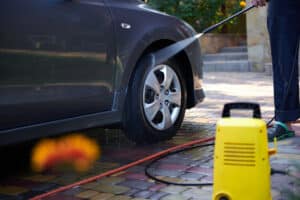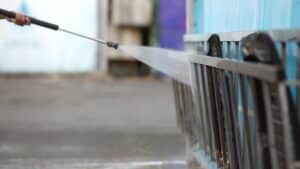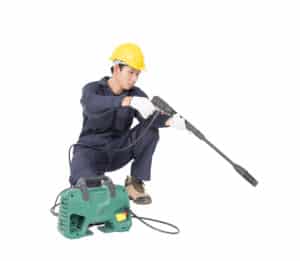How Do Electric Pressure Washers Work?
Key Takeaways
- Electric pressure washers are powered by an electric motor and water pump
- The water pump builds up high water pressure measured in PSI for effective cleaning
- The spray of pressurized water can be controlled by the user and adjusted with interchangeable nozzles
If you’ve ever wondered how electric pressure washers work, you’re in the right place. In this article, we will explore the inner workings of electric pressure washers and provide you with a comprehensive understanding of their functionality. Whether you’re a homeowner looking to clean your deck or a professional cleaner, knowing how these machines operate can help you make the most of them.
The Basics of Electric Pressure Washers
Electric pressure washers are powered by an electric motor, which converts electrical energy into mechanical energy. This motor drives a water pump that is responsible for drawing in water and forcing it out under high pressure. The high-pressure water is then directed through a specialized hose and spray wand to clean various surfaces effectively.
The Water Pump and Pressure Generation
The heart of an electric pressure washer is the water pump. When the electric motor is activated, it drives the pump, which builds up the high water pressure needed for cleaning. The pump has an inlet valve through which water is drawn from a hose or reservoir. Once inside, the water is pressurized and forced out through an outlet valve and high-pressure nozzle.
The pressure generated by the pump is measured in pounds per square inch (PSI) and determines the cleaning power of the pressure washer. Higher PSI ratings indicate greater pressure and, therefore, more effective cleaning. Electric pressure washers typically range from 1,500 PSI to 3,000 PSI, making them suitable for a wide range of cleaning tasks.
Controlling the Spray
The spray of pressurized water from an electric pressure washer can be controlled by the user. This control is achieved by pulling the trigger on the spray wand. When the trigger is pulled, the pressurized water is released, allowing the user to direct the spray toward the surface being cleaned. Releasing the trigger stops the flow of water.
Additionally, electric pressure washers often come with interchangeable nozzles that allow users to adjust the angle and intensity of the spray. Different nozzle types produce different spray patterns, such as a narrow, high-pressure stream or a wide, low-pressure fan. This versatility enables users to tailor the spray to the specific cleaning task at hand.
Detergent Dispenser
Many electric pressure washers also feature a detergent dispenser. This dispenser allows users to mix cleaning solutions with the pressurized water, enhancing the cleaning power of the pressure washer. The detergent is typically stored in a separate compartment or container attached to the pressure washer. When activated, the pressure washer draws the detergent into the water stream, ensuring thorough cleaning.
Conclusion
Electric pressure washers work by utilizing an electric motor to power a water pump that generates high-pressure water. The user controls the spray by pulling the trigger on the spray wand, and interchangeable nozzles enable adjustments to the spray angle and intensity. Additionally, some models come equipped with a detergent dispenser, allowing for the mixing of cleaning solutions. Understanding the inner workings of electric pressure washers can help you make informed decisions when using these machines for various cleaning tasks.
Related Websites:
FAQs:
Q: What is an electric pressure washer?
An electric pressure washer is a type of pressure washer that uses an electric motor to power the pump. It differs from other types of pressure washers in that it runs on electricity instead of gasoline or diesel fuel. The basic components of an electric pressure washer include the motor, pump, hose, and nozzle.
Q: How do electric pressure washers generate pressure?
Electric pressure washers generate pressure by using an electric motor to power the pump. The pump pressurizes the water, allowing it to spray out with force. The motor converts electrical energy into mechanical power, which drives the pump to create pressure.
Q: What are the benefits of using an electric pressure washer?
Using an electric pressure washer has several benefits. Firstly, electric motors are quieter and require less maintenance compared to gas-powered engines. Electric pressure washers also produce zero emissions, making them more eco-friendly. Additionally, electric pressure washers are generally more lightweight and easier to maneuver.
Q: What safety considerations should I keep in mind when using an electric pressure washer?
When using an electric pressure washer, it is important to ensure that the power source meets the requirements of the machine. It is recommended to use a Ground Fault Circuit Interrupter (GFCI) for electrical safety. Other general safety tips include proper grounding, using the correct extension cord, and avoiding contact between water and electrical components.
Q: How can I maintain and prolong the lifespan of my electric pressure washer?
To maintain and prolong the lifespan of your electric pressure washer, it is important to perform regular maintenance tasks. These include cleaning the filter, inspecting hoses for any damages or leaks, and properly storing and winterizing the machine when not in use. Following the manufacturer’s guidelines for maintenance is also recommended.

